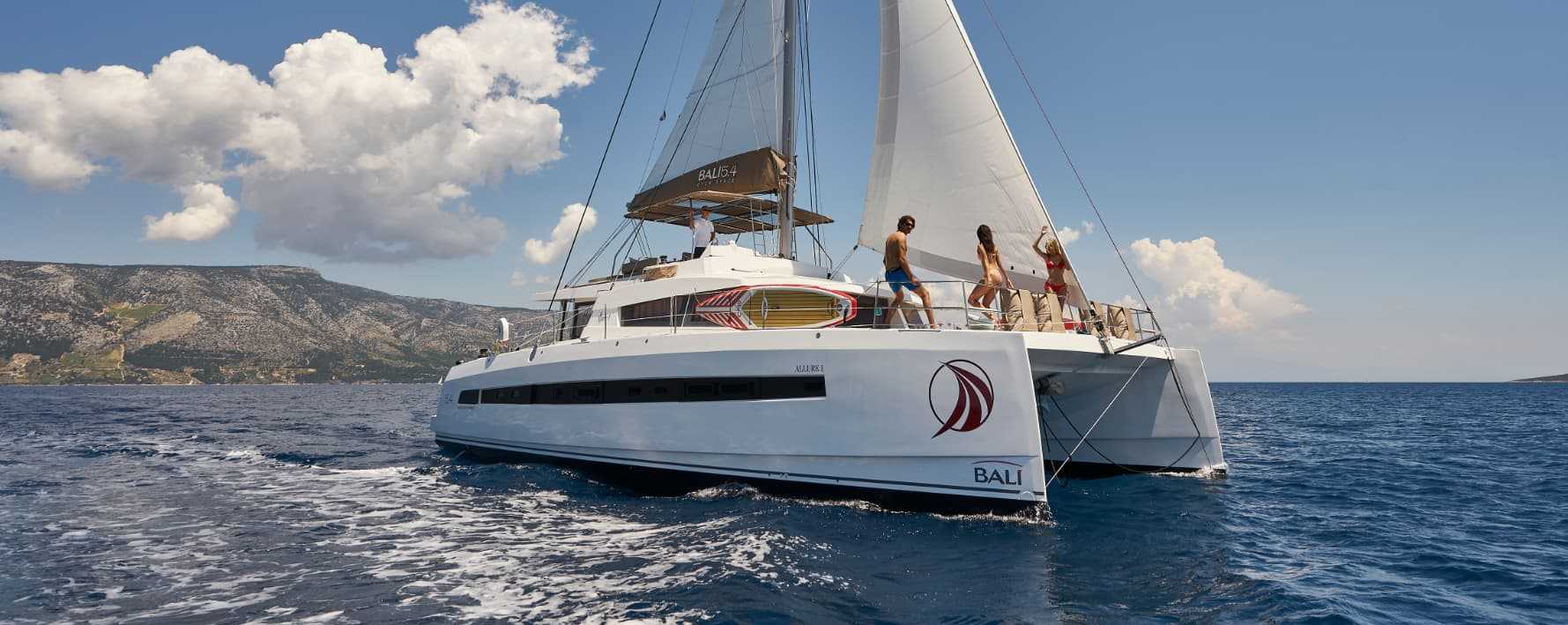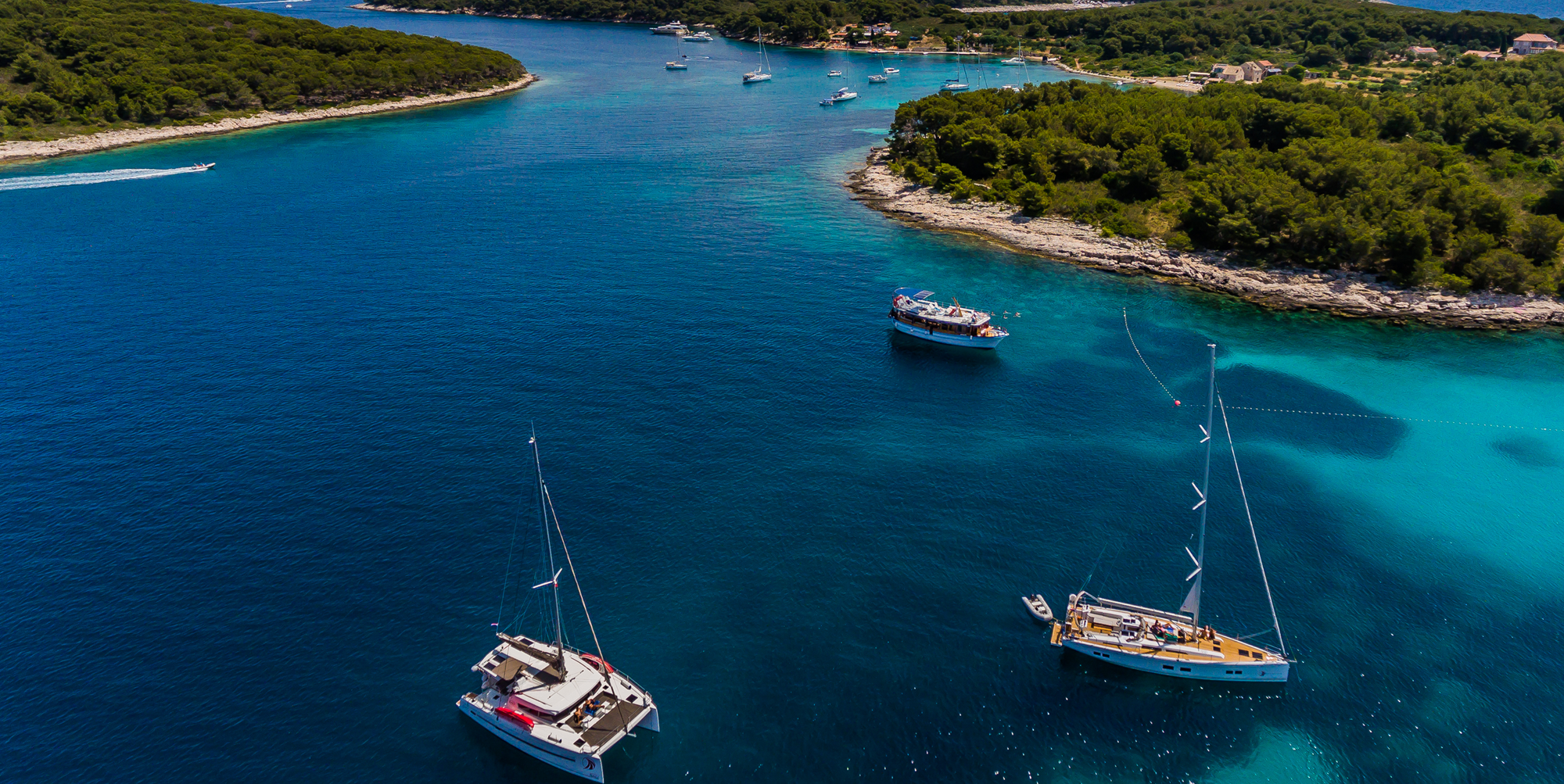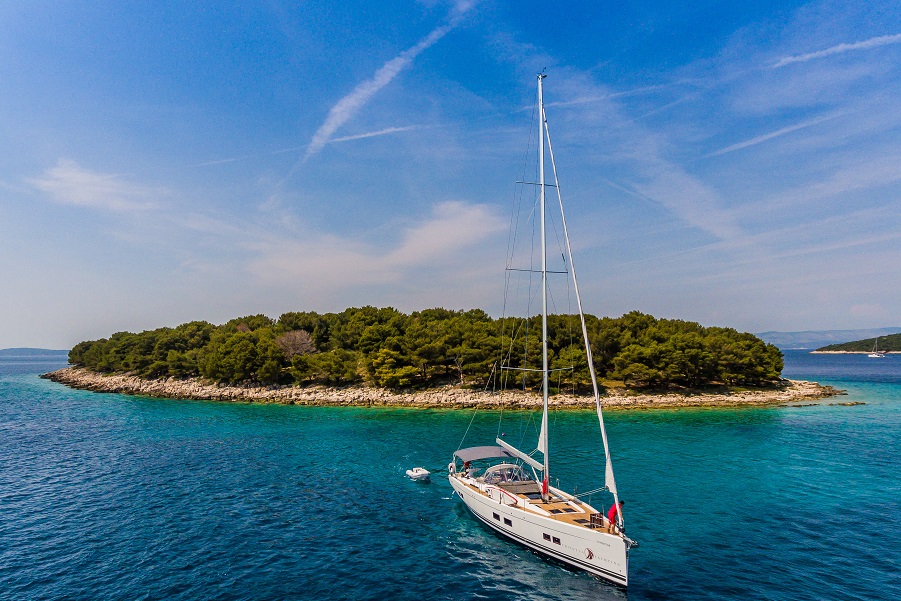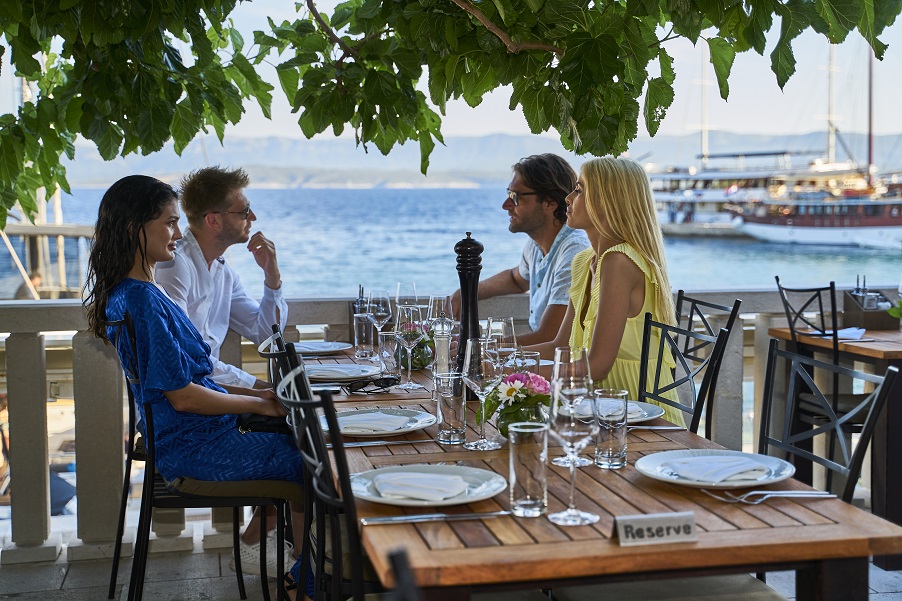Sustainable Yachting in the Adriatic: How to Protect the Sea While Sailing

Table of Contents
- Why Is Eco-Friendly Sailing Important?
- What Does Sustainable Sailing Look Like in Practice?
- Eco Yachting Tips: How to Reduce Waste at Sea
- Eco-Friendly Yacht Maintenance Tips
- Clean Energy on the Water: Solar Panels on Yachts
- How to Anchor Without Harming the Seabed
- Choosing Eco-Certified Marinas: Look for the Blue Flag
- Checklist for Responsible Yachting on the Adriatic
- Nautical Sustainability: Small Acts, Big Impact
A summer day, the scent of pine carried by the sea breeze, the gentle sound of waves, and the trail of a boat slowly fading behind you – a scene every sailor remembers and eagerly awaits. The sea invites us to relax, adventure, and silence, and the Adriatic, with its natural beauty and rich underwater world, is a true jewel of the nautical world. Yet, while we enjoy what nature offers us, we must not forget that beneath the sparkling surface often lies a human footprint that, if not reduced, can forever change this unique marine kingdom.

Today, the preservation of the marine environment is one of the most important topics of our generation. The sea for us is not just a space for sailing or recreation – it is our shared home, a source of life, and an inexhaustible inspiration. Every captain, whether commanding a small sailboat or a luxury yacht, has the opportunity but also the inevitable responsibility to sail sustainably. Eco-awareness at sea is not a passing trend but a necessary shift in thinking and acting so that we preserve the treasures that captivate us every season and make them available to future generations.
Why Is Eco-Friendly Sailing Important?
Modern boating does not only mean enjoying the beauties of the sea but also actively caring for its survival. More and more sailors, especially those with higher education and greater financial means, recognize the real value of a preserved marine environment. These guests seek not only spectacular landscapes and crystal-clear water but also marinas, charter companies, and breeders who are proactive in nature conservation.
Therefore, it is necessary to change personal habits and adopt small but important everyday decisions that make a big difference. From proper waste management to responsible anchoring – all of us together can raise the standards of sustainable yachting and prove how love for the sea necessarily goes hand in hand with care for its future.
What Does Sustainable Sailing Look Like in Practice?
Sustainable yachting is not an imaginary ideal but concrete actions by which we minimize negative impacts on the sea and its surroundings. This means:
-
Using ecological or renewable fuels, and wherever possible, powering the voyage by wind and sails.
-
Proper separation and disposal of waste on board to prevent pollution of the sea and coast.
-
Introducing renewable energy sources such as solar panels on yachts to power systems without emissions.
-
Using biodegradable cleaning and personal hygiene products that do not harm marine organisms.
-
Respecting biodiversity through responsible anchoring and behavior, ensuring we do not damage sensitive ecosystems like seagrass meadows.
Just like on land, small habit changes on board daily contribute to protecting the sea and marine life.

Eco Yachting Tips: How to Reduce Waste at Sea
1. Plan Your Purchases and Avoid Plastic
From the very first steps in provisioning your voyage, choose products with minimal packaging. Carry cloth or reusable bags, choose local groceries, and opt for products with minimal plastic packaging. Instead of single-use plastic bottles, equip yourself with water filters and reusable drinking bottles – such systems are common on many modern yachts and enable direct filling from the beach or marina. Every bottle less means cleaner shores and healthier seas.
2. Replace Disposable Items with Reusables
Use dishware, cutlery, and glasses that you can wash and reuse on board. Bring quality food containers that keep food fresher longer and reduce waste. Such simple changes reduce the risk of plastic ending up in the sea and the environment around us.
3. Recycle and Separate Every Piece of Waste
Most Croatian marinas have organized green islands with containers for plastic, paper, glass, metal, and bio-waste. Separate waste already on board and never leave anything in nature or at anchorages. Pay special attention to hazardous substances like batteries, oils, or chemicals – these are very difficult to degrade in nature and can cause permanent damage. Dispose of hazardous waste only in designated containers.
Tip: After sailing, do an "eco-check" of your yacht – check if all spaces and hard-to-reach places are thoroughly cleaned of waste. This small ritual shows care and responsibility, and you spread good practice to other sailors.

Eco-Friendly Yacht Maintenance Tips
Maintaining a yacht is not just about technical condition but also about environmental impact. Use biodegradable and ecologically certified cleaning products for deck, cabin, and sanitary maintenance. This protects the sea from harmful chemicals and helps preserve the natural balance.
Regularly service engines, monitor oil and fuel leaks, and use mats to capture possible spills. If possible, reduce engine use and utilize the power of wind as the primary propulsion – the feeling of true sailing is both an expression of respect for the sea and nature.
Clean Energy on the Water: Solar Panels on Yachts
Technology today is an ally of sustainability. Increasing numbers of yachts are equipped with solar panels that charge batteries, power lighting, navigation, and even air conditioning or refrigeration devices, reducing the need for fossil fuels. This means lower emissions, quieter operation, and a more pleasant stay at sea.
Interesting fact: One quality solar panel can save up to 50 liters of fuel during one week of yachting, directly contributing to lower costs and cleaner air.
How to Anchor Without Harming the Seabed
The Adriatic seabed guards unique plant and animal communities, especially seagrass meadows, which produce oxygen and provide a home for many fish species. Soft bottoms damaged by improper anchoring endanger beauty but also the future fertility of the sea.
Therefore, anchor only in designated places, use official mooring buoys, and always check depth and bottom composition. By following these simple rules, you protect the nature that is the source of your joy and the purpose of your voyage.

Choosing Eco-Certified Marinas: Look for the Blue Flag
Many Croatian marinas proudly carry the international Blue Flag label, a sign of exceptional care for the environment and quality of service. By choosing marinas with this certificate, you ensure a mooring place offering advanced waste separation systems, electric yacht charging stations, and regular ecological education.
Checklist for Responsible Yachting on the Adriatic
For every eco-conscious yachting vacation, it is useful to have a clear plan:
- Before departure, find out the locations of green islands and recycling points at the marinas you will visit.
- Stock up on local products without excessive packaging.
- Use reusable equipment and biodegradable cleaning products.
- Conduct regular eco-inspections of the yacht and remove any waste.
- Respect eco-anchoring rules and never feed or catch wild animals at sea.
Nautical Sustainability: Small Acts, Big Impact
It may seem that throwing away one bottle or abandoning a bag is a simple act, but it is a multitude of such small, irresponsible acts that create global problems, endangering all life in the sea. Sustainability in yachting is not just a choice – it is a necessity and a turning point.
Choose destinations, charter companies, and marinas that live and breathe sustainability. Join cleaning and volunteering actions, educate your guests and crew, and spread positive examples. A true sailor knows that respect for the sea is measured by actions, not just words.
















